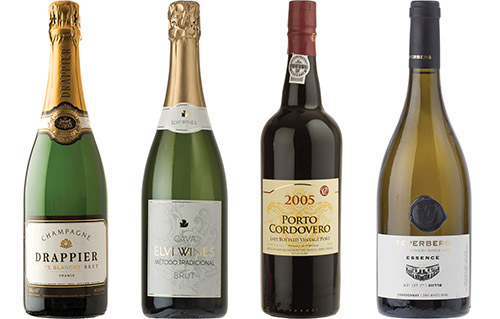

The Jewish people are celebrating a special holiday this week. While each Jewish holiday celebrates or commemorates different miracles in its own way, Chanukah can be considered the holiday of miracles. It is the first and only one of two holidays, along with Purim, during which we recite the special prayer of Al Hanisim, a tefillah in which we thank God for all the great miracles He has performed for our nation throughout history.
For eight consecutive days and nights we light candles on the menorah. The story of the Maccabim and their victory against the Greek commander Antiochus IV and his army is well-known, as is the interpretation of the lighting of the candles of Chanukah. The candles remind us that the menorah remained lit for eight days despite a quantity of pure olive oil that should have normally sufficed for no more than one day. Rabbi Lord Jonathan Sacks, the former chief rabbi of the United Kingdom, teaches us that this extraordinary and miraculous victory of the weak over the strong, of the few over the many, should always remind us that with faith and yirat shamayim even a small group of people can change the world for the better by doing the right thing. A tiny candle can light up the world in the darkest of times.
No holiday is complete without some festive food. A classic dish for Chanukah is latkes. Many, if not most, people do not know which wine pairs best with these oily delicacies. The answer is rather simple: bubbly! Bubblies are the ultimate celebratory wines, and especially dry sparklers such as Cava or Champagne is the ideal companion. The sharp bubbles and high acidity cut through the fat and balance out the heaviness associated with latkes. This is a “rule” that may be applied and repeated with all deep-fried and salty dishes. Two great bubblies are the Drappier Carte Blanche and the Elvi Cava Brut. The Drappier is an authentic French Champagne featuring notes of freshly baked bread and citrus peels. The Elvi Cava showcases the best Spain has to offer with aromas of orange blossom and baked apples. Speaking of apples, those serving latkes with applesauce should try accompanying them with the Baron Herzog Pinot Grigio; this wine is a true delight and a tremendous value. It is light in body and refreshing with bright acidity as well as notes of apples, pears and lemon zest. Latkes are also a great side dish on Shabbos Chanukah with poultry such as roasted or deep-fried chicken. For that, a fuller-bodied and more complex wine such as the Teperberg Essence Chardonnay would work perfectly—the clean texture, the mineral notes and the slightly toasted nut flavors enhancing the whole seudah.
Rabbi Sacks brings up the fact that many commentators question the first candle of Chanukah, since the jug of oil found by the Maccabim should have lasted for only one day. So, what is miraculous about that? Well, the fact that they found that small jug of pure olive oil after all Yerushalayim and the Beit Hamikdash had gone through during the war was a huge miracle on its own. The Jews always maintained their emunah, teaching us that am Yisrael should remain a ner tamid for the world. We may not have the fortress of the Beit Hamikdash today; however, we do have wines from impressive French castles, such as Château La Clare and Château Greysac. These Bordeaux wines from the Médoc can highlight our festive meals, providing notes of dark forest berries and earthy notes that marry well with a delicious braised brisket or a savory London broil.
Rabbi Jonathan Sacks reminds us that the Greeks created an entire culture and produced one of the most remarkable civilizations in history, with philosophers like Plato and Aristotle, historians like Herodotus and Thucydides, dramatists such as Sophocles and Aeschylus. They also produced art and architecture of a beauty that has never been surpassed. Yet, they corrupted their people and lost all morality. In the end, their entire civilization disappeared. The Jewish people, however, have always maintained values and morality. Thanks to the Torah and acts of chesed, we have never ceased to exist despite all the persecutions suffered all over the world and throughout the millennia.
A bit over 20 years ago, the small Jewish community of Barcelona in Spain did not have access to any good kosher wine for Kiddush and Havdalah. The local Lubavitcher rabbi then decided to approach a winery called Celler de Capçanes, in the nearby Montsant region. The rabbi convinced both the winemakers and owners to produce a small batch of kosher wine for the members of his shul. They accepted, and the rest is history. Today, Capçanes has a full lineup of six different kosher wines considered among the world’s finest. Some of these wines have been awarded the highest ratings ever obtained for kosher wines by Robert Parker’s Wine Advocate, the world’s most influential wine review. It is in fact the popular and critical acclaim of these kosher wines that have made the winery famous and successful among wine aficionados all over the world. The Capcanes Peraj Petita Dolç is the latest addition to the winery’s family of kosher wine. With its savory notes of blackberry preserves and caramelized pecan nuts, this Port-style blend of Carignan and Grenache, while not as heavy or rich as its Portuguese counterparts such as the Porto Cordovero LBV, makes for a delightful pairing with the hot, jelly-filled doughnuts that crown a Chanukah party.
May we enjoy Chanukah in the light of Torah with sumptuous food and amazing wines!
L’chaim! A freilichen Chanukah!
By Gabriel Geller
Gabriel Geller is a wine consultant for Royal Wines.









